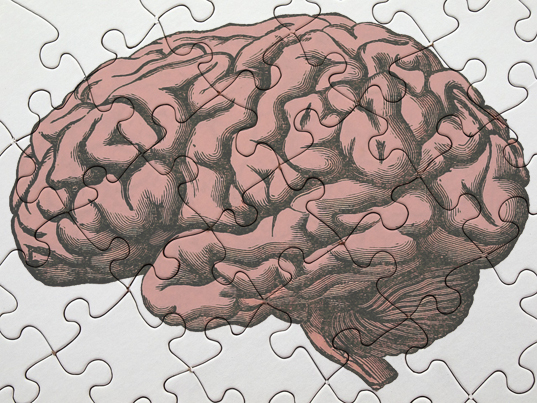


Save Hours and Pounds on your Christmas Gift Shopping
26th August 2015


Create a magical, hand crafted Christmas with a little help from Magazines
29th August 2015While many people would consider puzzle magazines such as Sudoku, number games, word jumbles, criss cross, crosswords, wordsearch and other such activities as simply a fun and enjoyable way to pass the time, recent studies show that playing such games and puzzles can provide benefits that go far beyond simple rest and relaxation.
Researchers have observed a possible connection between regularly solving puzzles and the delay of memory-related diseases such as dementia; whose symptoms may include memory loss and difficulties with thinking, problem-solving or language. The suggestion seems to be that Sudoku number puzzles improve memory, while crosswords expand the vocabulary; it is becoming more widely acknowledged that using your brain is an excellent way to stave off old age.
Your Brain is a Muscle…. Exercise It
It’s no surprise when you think about it. After all, your brain is nothing more than a muscle and, as such, is no different from any other muscle in your body. Therefore, as with all muscles, it’s a case of use it or lose it. So, just as you jog, cycle or go to the gym to stimulate the growth of muscle cells in your body and/or keep your “six pack” firm; you need to ensure you exercise your mind so you can help increase the connections in your brain.
Brain training exercise is becoming an increasingly popular way to help people of all ages keep their minds alert; a daily puzzle workout is an ideal way to kill a little time and keep your brain young. People who spend time on a regular basis exercising their mind with a puzzle game or two generally maintain their mental faculties longer than those who do not play such brain games.
And, while practicing new skills and learning new facts is often presented as less than exciting, good teachers have always known that puzzle games are some of the best ways to get old and young alike well on their way towards learning and mastering a subject area.
Scientific proof that a mental work-out really does exercise and sharpen the brain was reported by a Swiss-American team in leading scientific journal, Proceedings of the National Academy of Sciences, as far back as 2008. The report outlines how Drs Susanne Jaeggi, Martin Buschkühl and colleagues at the University of Michigan in Ann Arbor and the University of Bern used, in this case, a computer based brain-training method to improve general problem-solving ability.
Many psychologists had thought the only way to improve problem-solving ability was to practise the specific problem solving task you wanted to get better at. However, this theory was overturned by the work of the team. Their assertion was that you can improve general problem solving ability by carrying out unrelated mental exercises and solving puzzles.
According to the results of the study those who took part in puzzles had a significantly improved problem solving ability than those who did not. In addition, the more the participants trained the more problems they could solve.
Dr Jaeggi said: “It’s the same in sports: you cannot expect to get better in football if you merely run around a little bit and not really want to improve.”
This was some of the earliest evidence that mental exercise improves intelligence and general problem solving ability and implies that the time you spend on crosswords, Sudoku and other number and word games is time well spent. Skills are developed each time you play one of these puzzle games thus allowing you to “stretch your mental muscles” while doing something that is both entertaining and enjoyable.
Looking back even further, to the work of E. J. Meinze, evidence can be found which suggests that a high level of experience with crosswords in older subjects does seem to partially moderate the negative effects of age on memory and perceptual speed tasks (Psychology of Aging, Volume 15 [2], 2000, pp. 297-312).
However, while there are a phenomenal number of websites which discuss the positive relationship between puzzles and general brain function, existing research is just scratching the surface of this subject and, not surprisingly, the results in some cases are complex and mixed.
So where does this leave us? The conclusion would seem to be that leisure activities such as crossword puzzles, Sudoku and word jumbles offer us a fun way to stimulate our mind and, possibly, delay the onset of dementia. What’s more, this is achieved without any negative consequences so, it could be argued that such activities should be recommended as a positive activity for young and old alike.
The advice for older adults, and young ones too, should be to engage in mentally stimulating activities as a way of keeping your brain fit and maintaining an active and productive use of all your mental faculties. And, while any recommendation must include a caveat to the effect that while evidence of benefit exists it is not 100 per cent proven, it’s certainly true to say that solving puzzles is satisfying and it cannot hurt.
Indeed, what could possibly be the problem with older adults spending their time doing crossword puzzles and anagrams, solving Sudoku grids or figuring out a logic puzzle? No matter which way you look at it there’s no problem at all. People will probably improve at the targeted skills and they may even feel good about themselves too —particularly if the puzzle has been both challenging and successfully completed.
So, why not treat yourself to a subscription to your favourite puzzle magazine and start your own daily brain train regime?
Unique Magazines, supplies all the top puzzle titles including, Lucky Seven Crossword Collection, Family Wordsearch Jumbo, Family Criss Cross Jumbo, Sudoku Grandmasters, Sudoku Time and Everyday Codewords and a subscription is the most convenient way to ensure you never miss an issue as your copy will be posted directly to you each time it is published.




